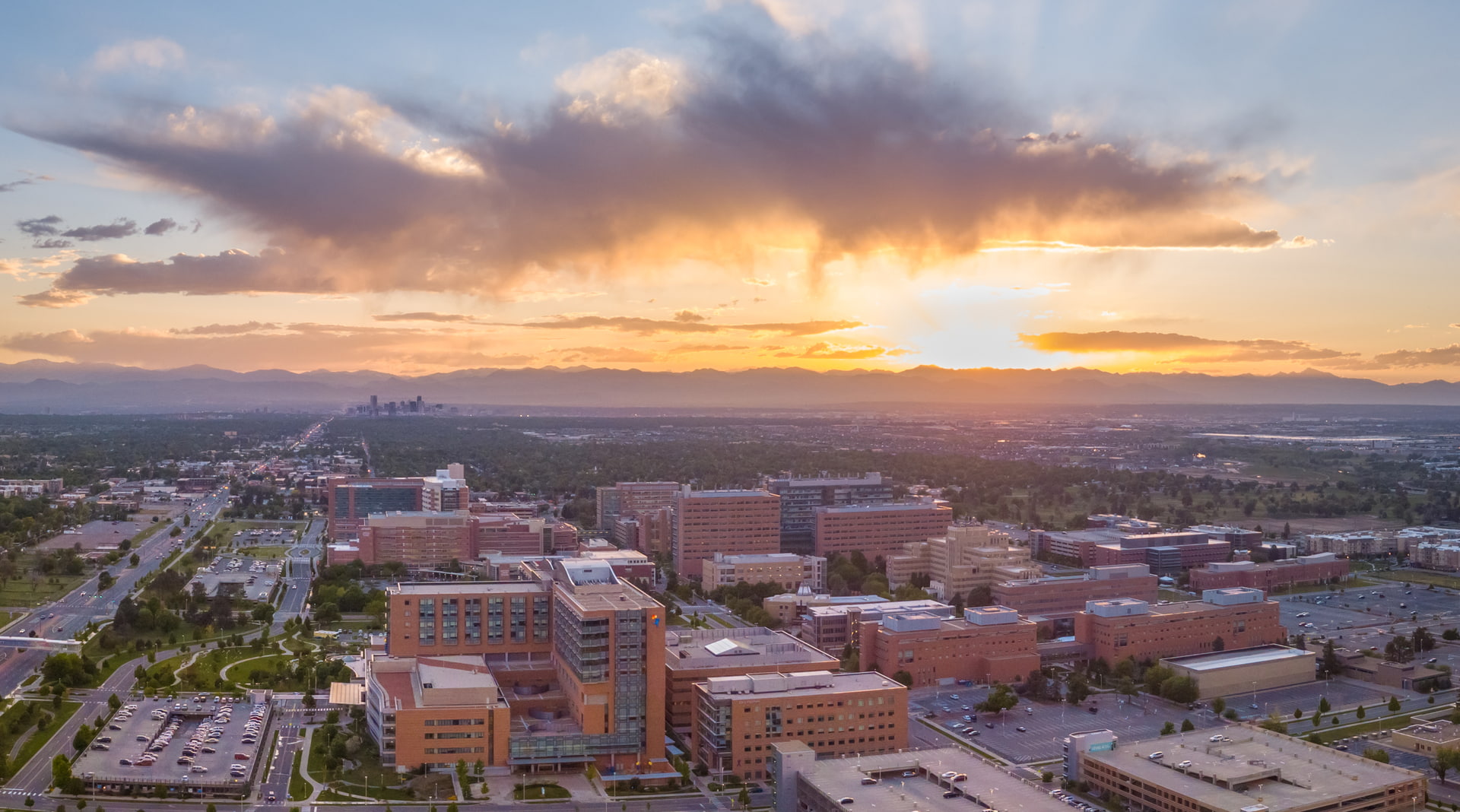
One of the great contributions CU Anschutz makes to society is the creation of new knowledge and new solutions to improve human health. To fulfill that critical mission, we must be an inclusive and respectful community in which each of us feels empowered to speak freely about our ideas and perspectives. This is crucial to the open, innovative environment that enables our campus to thrive. - Donald Elliman, Jr., CU Anschutz Chancellor
Freedom of Expression
The CU Anschutz Medical Campus is committed to being a place where free speech and academic freedom are valued, supported and protected, within a culture of civility and respect. In accordance with CU Regent law and policies, revised in September 2018, we distinguish between academic freedom, which happens in classrooms and research labs, and freedom of expression, which happens on campus and in a person’s private life. This website outlines our steadfast commitment to freedom of expression and academic freedom and highlights relevant policies and programs.
History
Free Speech at CU Anschutz
As a campus of the University of Colorado, CU Anschutz advances the health and well-being of the people of Colorado and the world through its pioneering advances in education, research and healthcare delivery.
As part of engaging a well-trained professional citizenry, CU Anschutz hosts speakers who represent differing views. CU Anschutz will continue to ensure that the primacy of academic freedom and freedom of expression are upheld and the critical nature of civil discourse remains a part of this community.
For Students

Freedom of expression plays a valuable role in the student experience at CU Anschutz. Universities provide unique opportunities for you to hear a variety of viewpoints, express your own views, debate issues, get involved and make change. An active, vocal and engaged student body is a keystone of university life. CU Anschutz students enjoy academic freedom (the ability to raise questions and challenge views in the classroom) and freedom of expression (both on campus and in their private life), as protected by the First Amendment and Colorado’s constitution. Below are resources for getting involved on campus, as well as exercising your freedom of speech:
- Campus Student Services
- Student Organizations & Interest Groups
- Student Senate at CU Anschutz
- Campus Happenings
- Student Conduct and Grievance Processes
- Office of Equity (for student academic freedom violations)
Policies and Procedures
CU Anschutz Policies & Procedures
Regent Laws & Policies
- Article 1: Freedom of Expression
- Policy 1: Freedom of Expression
- Article 5: Faculty (includes academic freedom)
- Policy 5: Faculty (includes academic freedom)
- Article 7: Students (includes academic freedom)
- Policy 7: Students (includes academic freedom)
- Article 8: Conduct of Members of the University Community
- Policy 8: Conduct of Members of the University Community
- Administrative Policy Statement 2028
Who Speaks for CU?
The University of Colorado values freedom of expression and recognizes that expression takes many forms. The Regents of the University of Colorado, the president of the university and/or the chancellor of the campus, are solely authorized to adopt positions and make statements on matters of social or political concern of the university or the campus (see University of Colorado Administrative Policy Statement 2028). Other members of the university community may express opinions, consistent with Article 1E of the Laws of the Regents, and the Regent Resolution on Statements of Public Concern. Any such statements are the expression only of the person or entities who have authored them and are not statements on behalf of the university or the campus.
Frequently Asked Questions
What is freedom of speech?
Dec 18, 2018, 15:34 PM
Question :
What is freedom of speech?
The First Amendment to the U.S. Constitution protects free speech of members of the university community and their ability to speak on matters of public concern as private citizens:
Congress shall make no law respecting an establishment of religion, or prohibiting the free exercise thereof; or abridging the freedom of speech, or of the press; or of the right of the people peaceably to assemble, and to petition the Government for a redress of grievances.
Through the Fourteenth Amendment of the Constitution, the First Amendment’s protections were made effective against governmental entities such as the state and public institutions of higher education.
The First Amendment protects not only speech, but also expressive activities. The types of expression that the courts have determined are expressive activities include flag-burning, burning draft cards, political cartoons, protest armbands, political buttons and slogans on T-shirts. During the second wave of the feminist movement in the 1960s, women burned their bras to protest gender inequality. Speech involving issues of public concern, such as political and social matters, have the most protection. But while some activity — such as burning a cross — may be protected as First Amendment speech, it could nevertheless be subject to criminal prosecution, if it violates criminal laws that do not involve the content of the speech.
Related campus :
Related target Audience :
Tags :
Categories :